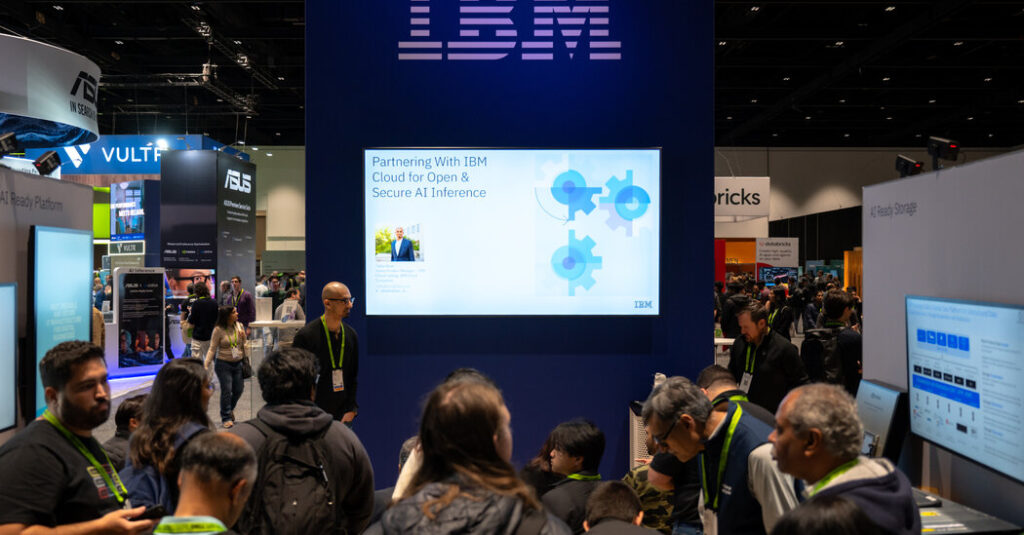On Monday, IBM was among several tech companies to announce new investment plans in the United States, responding to the Trump administration’s call for increased domestic manufacturing.
Based in Armonk, N.Y., IBM declared that it intends to invest $150 billion in the U.S. over the next five years, which includes $30 billion dedicated to the production of its mainframe and quantum computers. This announcement, partly aimed at stimulating the U.S. economy, follows Nvidia’s recent pledge of $500 billion to manufacture all its A.I. supercomputers domestically.
“With this investment and commitment to manufacturing, we ensure IBM remains at the forefront of the globe’s most advanced computing and AI technologies,” stated Arvind Krishna, IBM’s CEO.
However, the reality of these commitments from IBM and other tech leaders remains uncertain. Previous investments announced by major corporations, including during Trump’s first term, have often not met the ambitious goals initially set. For instance, a $10 billion project promised by electronics maker Foxconn in Wisconsin in 2018, which Trump described as the “eighth wonder of the world,” fell significantly short of expectations.
These announcements have been frequent since Mr. Trump’s inauguration. Last month, Taiwan Semiconductor Manufacturing Company, the largest chip manufacturer globally, stated it would invest $100 billion in the U.S. over the next four years to boost its production capacity and advance its most sophisticated semiconductor technologies at its Arizona facilities. In February, just after Apple’s CEO met with Mr. Trump, the company announced plans to invest $500 billion and create 20,000 jobs in the U.S. over the next four years, along with establishing a factory in Texas to produce machines for its artificial intelligence efforts.
In January, Mr. Trump unveiled a joint venture involving OpenAI, SoftBank, and Oracle slated to create at least $100 billion in computing infrastructure to support artificial intelligence. This initiative added to the significant investments tech firms have made in U.S. data centers, even though the move to form the venture started before his presidency.
The Trump administration has pressured businesses to enhance their production in the U.S., primarily targeting China. Nonetheless, certain items like smartphones, computers, semiconductors, and other electronics were exempted from the tariffs that Trump imposed on Chinese products during his trade conflict.


